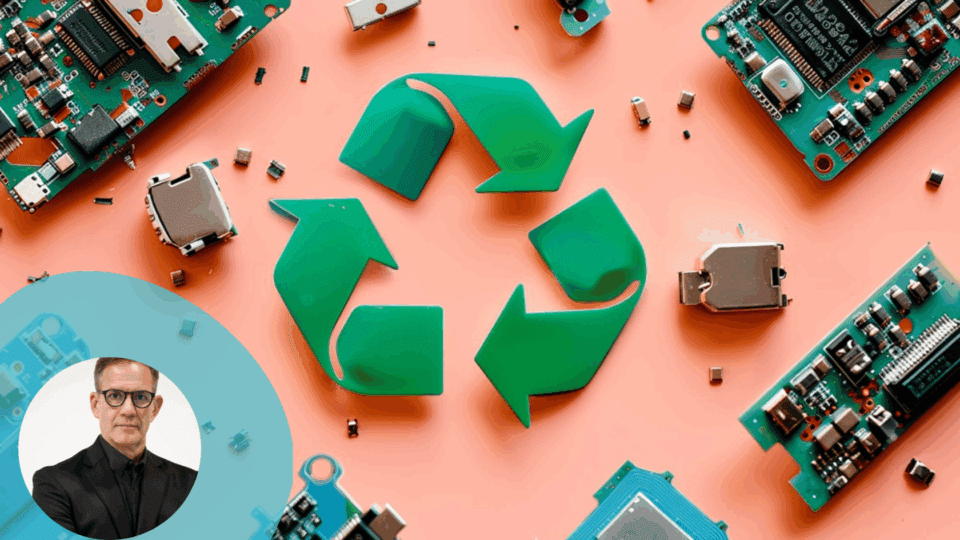From yo-yoing new tariffs to supply chain instability to shifting consumer preferences, market turbulence is hitting retail hard. As volatility becomes the new normal, retailers are leaning into sustainability – not just as a value statement and “nice-to-have,” but as a strategic lever to cut costs, boost efficiency, stay resilient and weather economic headwinds.
In my role as the President and CEO of IPC, the global electronics association, I have the honor of meeting regularly with small and large companies around the world. Although I speak on behalf of the electronics industry, ours is not a standalone industry. Electronics have become the connective tissue powering every industry – from apparel to home goods to grocery stores.
It is more important than ever for retailers to pay close attention to the role of electronics in their sustainability journey. As retailers rethink how they source, track and distribute, shifts in the electronics space will have cascading effects in every industry. Whether it’s collecting data on emissions and resource use, powering transparent and connected supply chains or automating energy-intensive processes, electronics enable retail to become more sustainable. Electronics help companies innovate with new solutions, while measuring and tracking their environmental impact.
For retailers, sustainability and electronics’ innovation go hand in hand. Advancements in technology are allowing retailers to increase and improve their sustainability initiatives. For example, 62% of retailers have reported increasing practices that promote energy efficiency, and 53% are using energy-efficient machinery, technology and equipment. Cutting-edge retail tools like automated inventory management are enabling retailers to more accurately forecast demand to avoid overstocking and waste.
Clear incentives to invest in cleaner products is inspiring a surge in innovative offerings – and has attracted investor attention around the world. We’re also feeling this enthusiasm for sustainable innovation palpably in the electronics sector. A reconstruction of the electronics industry’s footprint is well underway, so that the innovations we create make less of an impact on the planet.
IPC’s recent survey, Wired for Change, conducted in January 2025, found that electronics companies are overwhelmingly embracing sustainability initiatives, with 60% anticipating an increase in sustainability initiatives, including circularizing their supply chains and their products, in 2025.
Despite all of the progress we gain through implementing new technology, electronics also can contribute to unintended and unwanted environmental impacts. In many cases, products are not as energy efficient or easily recyclable as they could – and need to – be.
For example, more than 62 million tons of electronic waste are generated annually, leading to $57 billion in lost materials like copper and gold. Today, e-waste is one of the world’s fastest-growing solid waste streams. And as demand for energy-intensive innovations like Artificial Intelligence skyrockets, there are some estimates that it could require the same amount of electricity as a small country in the coming years.
There is room for improvement in how retailers can help to decrease waste, including e-waste, and increase energy efficiency. PwC’s Second Annual State of Decarbonization report, published in March 2025, showed that 84% of retail, consumer goods and electronics manufacturing companies surveyed are standing by – or in some cases increasing – their sustainability commitments.
Policies and regulations also are shaping the future of sustainability, which will have impacts across industries, including retail and electronics. For instance, EU-led policies on ecodesign promote sustainable products that have longer lifetimes and can be refurbished, remanufactured, and recycled. They promote the development and use of digital product passports – a sort of ingredients label, but for products instead of food – that could make information sharing easier for supply chain members and put valuable information into consumer’s hands about a product’s sustainability profile.
At the end of the day, just about every CEO I speak with wants increased sustainability for their supply chain and their products: they see the value for efficiency and customer demand. So why is it so hard to get there?
Even as internal expectations around sustainability rise, many companies are grappling with cost constraints, fragmented supply chain data, and uncertainty and complexity around reporting standards. Retail leaders have reported that they share these same challenges.
Truly effective, globally unified solutions will require our industries to come together in partnership on sustainability. We need companies and industries to move together unilaterally to support sustainable innovation.
The electronics industry is quite literally creating products that companies can use to solve for these sustainability challenges. Innovations in the electronics sector can support retailers to increase energy efficiency, streamline supply chain routes and report on emission reductions to meet regulations.
Less talked about – but, in my mind, equally important – is the importance of cross-industry dialogue about the successes, challenges, solutions and resources needed to fast-track a sustainable shift. I advise that retailers bring electronics to front of mind: the electronics industry must be evaluated as part of retail’s sustainability story.
As IPC’s president and CEO, Dr. John W. Mitchell leads the organization’s global operations and staff. He joined IPC as President and CEO in April 2012 and continues to be instrumental in launching solutions to strengthen supply chain resilience and promote industry growth. Dr. Mitchell has championed IPC programs and initiatives such as Evolve, a comprehensive, newly launched comprehensive program that helps accelerate electronics companies’ sustainability efforts. With Dr. Mitchell at the helm, Evolve serves as the go-to program for sustainability, convening experts, sharing successes and providing resources and tools to integrate sustainability into company operations.




